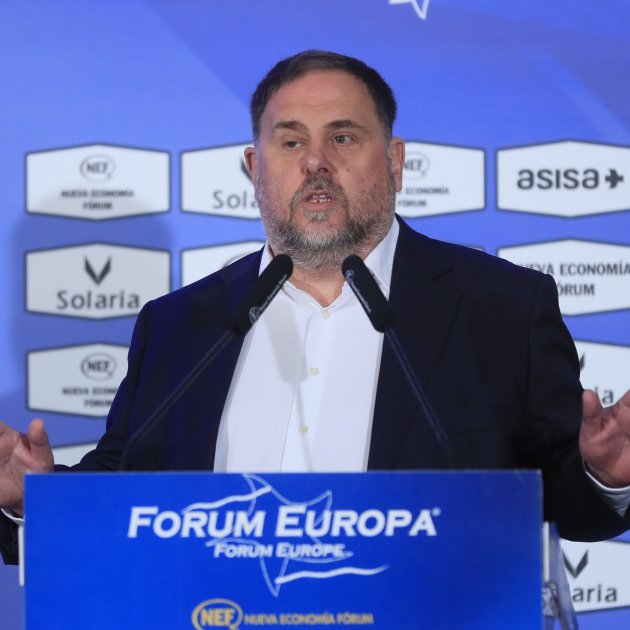The president of the Catalan Republican Left (ERC), Oriol Junqueras, has rejected the pressures by the major civil society group, Catalan National Assembly (ANC), for the Catalan government to put into effect its independence declaration at the end of 2023. In the same line as the Catalan president Pere Aragonès, the likewise-ERC politician Junqueras affirms that the Catalan independence movement needs to continue gathering more "democratic strength" and he made a simile with a mathematical equation. Speaking in a media breakfast session organized by the Nueva Economía Fórum in Madrid, Junqueras defended that independence "is not a question of deadlines or time, but rather a variable depending on the democratic strength that we are able to accumulate before the international community" and he added "if this force were greater, independence would be much closer". For the Republican leader, "our obligation and our desire is to build broad democratic majorities so that our steps can be accompanied by a majority of Catalan society and international organizations".
Message to Junts and Pedro Sánchez
Junqueras is convinced that his party's message is "the most integrative, the most inclusive, the most democratic" and "the one that opens the most doors to the international community". In fact, he believes that "there is no alternative strategy" to the path of dialogue promoted by ERC. In this regard, he defended the role of the negotiation table between the Spanish and Catalan governments and regretted the situation created by the absence of Junts. "The Spanish government appreciates that not all of the independence movement is sitting at the table because it relieves it of much of the pressure it would have to face" and, for this reason, he requested Junts - without mentioning them by name - "not to be afraid to confront ideas in any space". After the threats made by some Junts leaders to leave the Catalan government, the former vice president assures that this option is "highly improbable". He also showed himself as appalled because Pedro Sánchez "has little interest in the table" because "every time he sits down, he drags his feet and would always like to avoid it altogether."
The usefulness of the dialogue table
Junqueras affirms that he will stick with the path of dialogue, come what may: "Negotiation is a useful and essential political tool." And if the Spanish government does not want to negotiate, he remarked, "it is part of our obligation to find frameworks that can transmit the democratic principle" without specifying what the next steps would be. "This does not mean that negotiation is the best of tools," replied Junqueras who, looking from a Spain-wide perspective, warned that "it is very difficult to establish solid majorities in Spain if a large part of society feels deeply alienated in terms of institutional representation" - referring to Catalonia and Euskadi. In this respect, he recalled that the People's Party, Ciudadanos and Vox "control one municipal council in Catalonia". He also regretted that "the institutional framework of the Spanish state makes it impossible for the Catalan Parliament to guarantee basic social rights."
